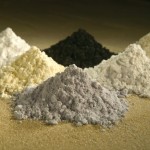When there is a heatwave, people usually rely on air conditioners and fans to keep themselves cool. But these devices use a lot of electricity, which means there is a higher demand for energy during heat waves. Here are the economic implications:
Table of contents [Show]
Higher Energy Bills
When people use more electricity to power their air conditioners and fans, it leads to higher energy bills. The more energy people consume, the more they have to pay. This can put a strain on people's budgets, as they have to spend more money on electricity to stay comfortable during the hot weather.
Strain on Power Grid
The increased energy demand during heat waves puts pressure on the power grid. The power grid is like a network that distributes electricity to homes and businesses. When there is a high demand for electricity, it can sometimes overload the power grid, leading to power outages or blackouts. These blackouts can disrupt daily life and even affect businesses.
Increased Costs for Businesses
Businesses also face higher energy costs during heat waves. They need to run air conditioning systems to keep their employees and customers comfortable. The increased energy demand means higher electricity bills for businesses, which can affect their overall expenses and profitability. Small businesses, in particular, may struggle to cope with the additional costs.
Impact on Energy Supply
Meeting the increased energy demand during heat waves can be a challenge for energy suppliers. They need to produce and supply more electricity to keep up with the higher consumption. This can require additional investments in infrastructure and resources to ensure a reliable energy supply. These investments can have economic implications for both the energy companies and consumers.
Environmental Impact
Generating more electricity to meet the increased demand during heat waves often means using more fossil fuels, such as coal or natural gas. Burning these fuels contributes to greenhouse gas emissions, which contribute to climate change. So, the economic implications of increased energy demand during heat waves go beyond just monetary costs. They also impact the environment and the need for sustainable energy solutions.
To address these economic implications, it's important to focus on efficient use of energy and sustainable energy sources.








